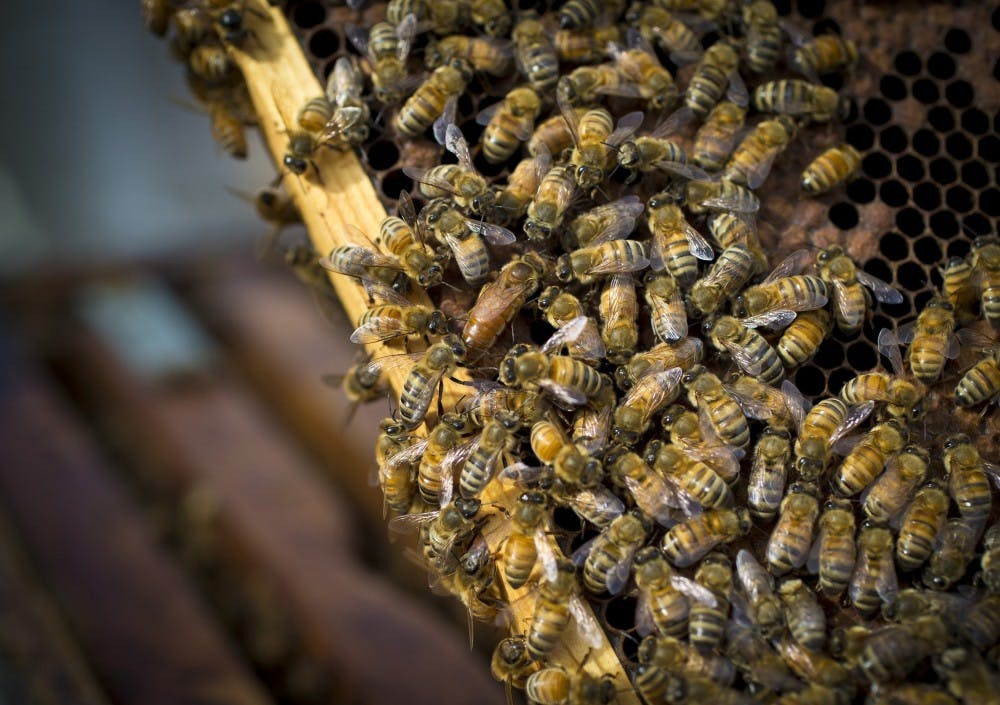If you ask any ASU student on campus about the ASU advisory emails, you’re going to get a response about the bees. ASU “has issued almost 10 bee alerts since March 26, and all four campuses have been affected,” reports Kaila White for the Arizona Republic. While it is important to notify students, and important to protect both the bees and individuals around swarms, the excessive advisories have turned the bees into a University-wide joke. From Reddit to Yik Yak to an ASU Bees Twitter account, students and faculty have poked fun at the fact that bee sightings are seemingly a daily occurrence.
However, the joke is causing two problems that could become much bigger issues. First, no one is taking ASU advisory notifications seriously anymore. The joke about the bees is making it so that an ASU advisory is longer a serious matter despite the fact that it isn’t solely to notify people about bee sightings. Secondly, people aren’t taking bees seriously either. The population of bees has had a significant downfall which poses a huge threat to pollination and agriculture.
CardStudents joking about the ASU advisory emails and texts may not take ASU advisories as seriously anymore. There isn’t really any definition between what ASU Alerts are and ASU Advisories are with the exception that the system page states that, "ASU Alert communicates primarily life-threatening situations to the ASU community.” However, in the midst of all the bee notifications since the beginning of the Spring 2015 semester, there were also notifications of an armed robbery at West campus and a missing 12-year-old on the Tempe campus. These are not on the same level of security advisories as bees. They are clearly much more important than staying away from a particular area while Ground Services takes care of swarms or hives.
The bees are important, too, and the joke not only takes away from the importance and the seriousness of the ASU advisory and alert system, but it also takes away from the bees. Provost Robert E. Page Jr., as an established entomologist, sees the importance and has even recently put out, “11 Buzzworthy Bee Facts Your Provost Wants You to Know” on ASU’s Research Matters webpage.
In a similar way that the population of Monarch butterflies are affecting crops, bee populations are just as important. “One of every three bites of food eaten worldwide depends on pollinators, especially bees, for a successful harvest,” Elizabeth Grossman for Yale reports. It’s not helping that there’s such hostility towards the bees on campus. Similarly, ASU even does its own studies on bees since the research on learning and memory is such a fascinating topic.
“No one at ASU has been hurt in a bee attack. …Until the swarms split off and leave on their own, ASU students are left to joke about the pests and hope for the best,” State Press reporter Josh Thrall said in an article from two years ago. Things haven’t changed, so clearly, the ASU advisories don’t need to keep informing us about the bees.
Reach the columnist at Kayla.Chan@asu.edu or follow @KaylaRC2014 on Twitter.
Like The State Press on Facebook and follow @statepress on Twitter
Editor’s note: The opinions presented in this column are the author’s and do not imply any endorsement from The State Press or its editors.
Want to join the conversation? Send an email to opiniondesk.statepress@gmail.com. Keep letters under 300 words and be sure to include your university affiliation. Anonymity will not be granted.




